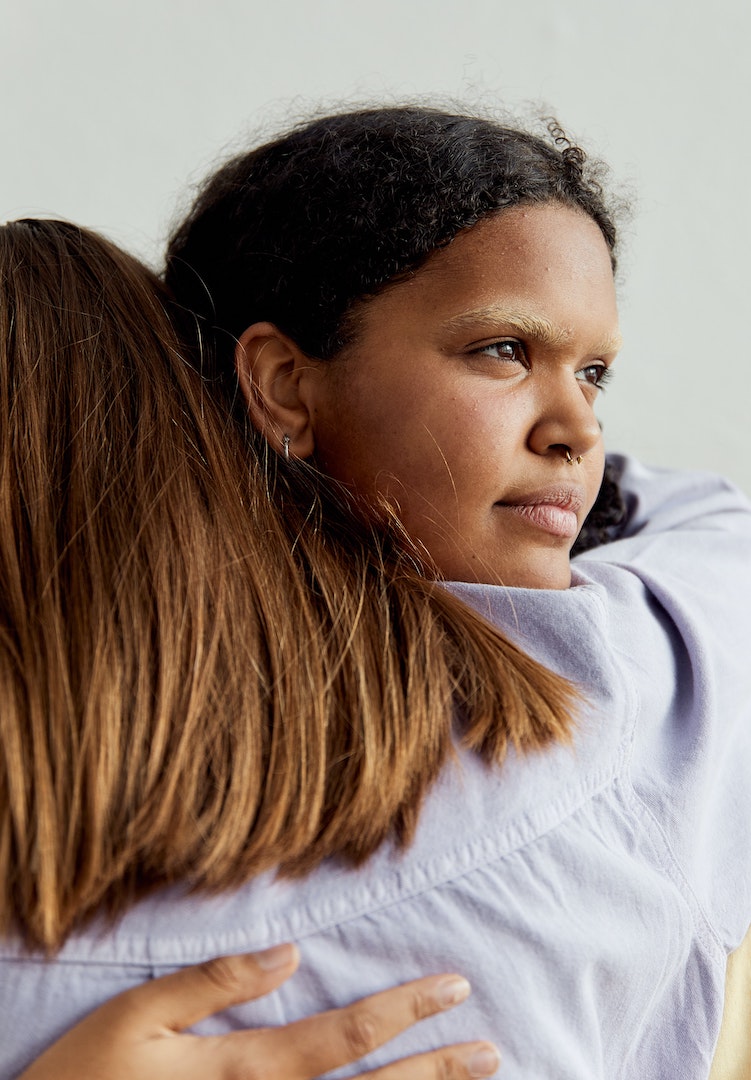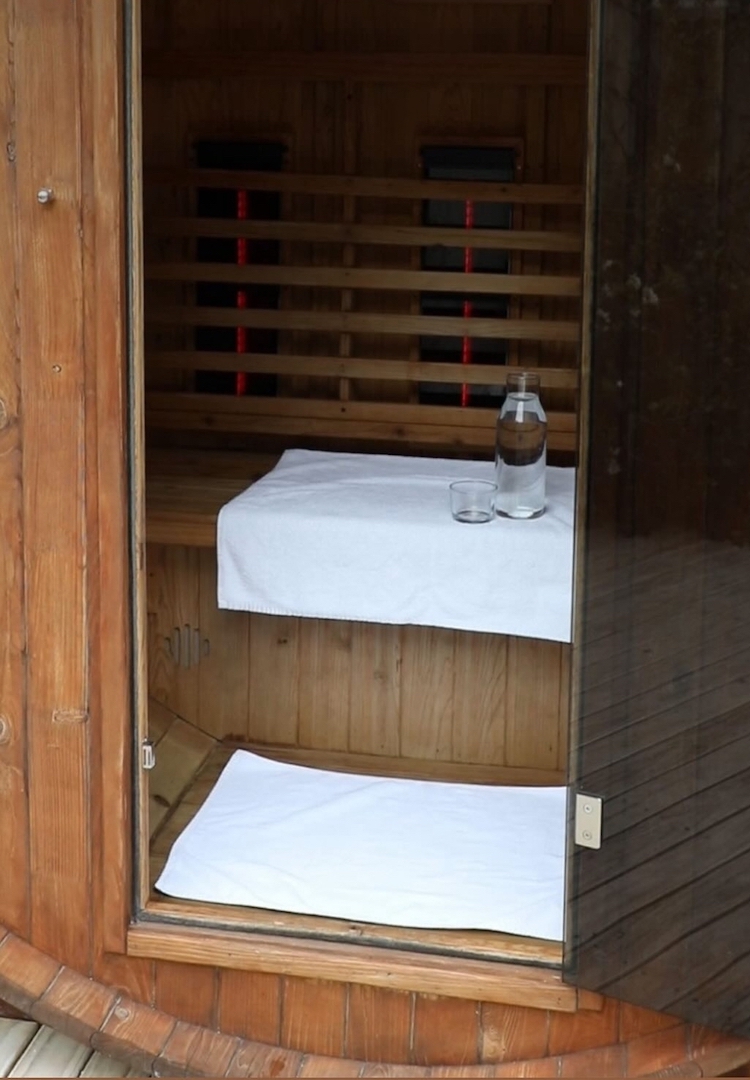This is how to maintain friendships when you’re depressed
WORDS BY DEANA Stepanian
“Doing simple tasks, like replying to a text, might actually feel like climbing a mountain.”
Everyone that knows me well knows I’m horrible at responding to texts. My phone has been set to ‘do not disturb’ mode for over six years, and I will decline your phone calls 95 per cent of the time. The general assumption is that just because we own a phone, we have to be constantly available both digitally and offline. And it’s hard to upkeep.
Whether I’ve been feeling low or experiencing periods of depression, isolating myself has always been my preferred coping mechanism. It feels like self-care. The routine usually involves deleting all my social media apps, smoking my room with incense and veiling myself under my bed quilt with noise-cancelling earphones on.
Looking for more thought-provoking lifestyle content? Head to our Life section.
Declining social invitations becomes a knee-jerk response, and attending any leaves me feeling sucked dry for weeks. I’ve come to understand this not only makes me feel lonely (obviously) but also unintentionally signals to others that I’m uninterested in maintaining the relationship. It makes sense, but it can be tricky to communicate, especially when you’re meeting new people.
Passively witnessing your social life decline during these periods can make matters seem worse, and I’ve found that sharing why I get into these states is beneficial. With understanding friends, it’s become easier to navigate through the years. To have a firmer grasp on understanding how depression can affect friendships, I spoke with Melbourne-based psychologist, Giulia Flammea from Prana Psychology.
Hi Giulia! How does depression affect someone’s ability to socialise and show up in friendships?
Well, when we think of what it might feel like to be depressed, it’s kind of like going into a shutdown mode. People may feel fatigued, want to withdraw from the world and everything may start to feel like a huge effort, even the really basic routine tasks! When people are depressed, they are not in the optimal frame of mind to want to be open and social and so… reaching out and/or spending time with friends may just feel too hard.
So even if you love your friends and have the best intentions when feeling depressed, you may not feel like you have the capacity to show up for your friendships in the way… you can when you are feeling good!
Why do people with depression find it challenging to stay in touch with others?
When someone is depressed, they likely find it challenging to even show up for themselves every day, let alone stay in touch with others! Getting out of bed could feel hard, preparing food, showering, getting through a workday… it’s all very hard! Your nervous system in moments of being really depressed is in a dysregulated state, which can be referred to as ‘hypo-arousal’.
When you are in this state, it’s like running on very low batteries, and with that, our perceptions are also skewed to seeing ourselves and the world through a sort of depressive lens. So even if staying in touch with others may help you… feel better, you may not perceive it in that way when you are depressed, and connecting with others may also… feel too unmanageable.
There’s a societal expectation to be digitally available at all times. Why are tasks like responding to emails and texts something people with depression might struggle with?
Firstly, I think the expectation of having to be digitally available at all times is not helping anyone. Trying to maintain this level of digital availability… likely contributes to higher levels of stress, so let’s take the pressure off! But… for people to function most effectively, their nervous system needs to be in a more regulated state.
We can refer to this as being within our ‘window of tolerance’. When we are in our window of tolerance, we can operate from the frontal part of our brain, which helps us… engage in life without getting too overwhelmed or too withdrawn, and we can connect with others more easily. Unfortunately, when we are depressed, we are likely not in our window of tolerance.
So doing simple tasks, like replying to a text, might actually feel like climbing a mountain. It might be easy for others to judge or label people who are depressed as… ‘lazy’ or ‘not caring’, but that’s simply not the case. Everything is just a lot harder when you are depressed.
How should someone approach maintaining their friendships during periods of depression?
I think maintaining friendships during times of depression needs to be a very intentional action. This is because you are likely… to have [the] tendency to want to do the complete opposite and withdraw when feeling depressed. So, a good first start is… to recognise that you are feeling depressed, and then intentionally take steps to look after yourself during these times.
You could start by asking yourself, ‘What am I able to manage today?’ and setting yourself small, manageable goals every day to keep yourself socially engaged. It could be as simple as [sending] a close friend a text message or [drinking] your coffee in a cafe around other people, instead of having it at home. Exposing yourself to social interactions, getting out of the house and being around people during times of depression is… going to help boost your mood.
Are there ways that a friend can support someone during this time?
Of course. I think firstly, try not to take it too personally… if you notice your friend is depressed and not being as socially engaged as usual, they are likely struggling! You could be more proactive in reaching out to them, knowing that they may struggle to reach out to you. Ask them if they are okay, and if there is any way… you could support them.
You could help them out by dropping them off some food or groceries, going for a walk together, or sitting with them and watching a TV show. Having them know that someone who cares is there for them can make all the difference during times of depression.
In saying that, know your own boundaries too. It’s easy to get lost in caring for others at the expense of ourselves, so make sure you’re also keeping up with your own self-care so that you can show up better for yourself and your friends during tough times!
And how can someone with poor mental health regain their sense of social wellbeing?
Poor mental health can be really debilitating, depending on severity, so regaining a sense of social wellbeing might look a bit different for everyone. Despite this, getting the right support is a really important first step to improving your social wellbeing. It could be visiting your GP, finding a good therapist or reaching out to a close friend to share your difficulties.
Having someone to support you during tough times can help lessen the burden and… make all the difference. Working to regain your sense of social wellbeing during tough times will need to be a very intentional act.
… My advice is [to] start easy and build your confidence up. Make small goals for yourself every day that can help expose you to connecting [with] and being around others. It could simply be deciding to make eye contact and smile at your server at the café as they take your coffee order.
It might sound silly, but intentionally smiling and making eye contact with others can help… increase the secretion of feel-good hormones… and reduce stress. So set realistic and achievable goals for yourself daily towards social engagement. Be mindful not to set your goals too high, as you want to work on building your confidence… by [following] through on the goals you set.
If you or someone you know is struggling with their mental health, you can contact Lifeline on 13 11 14.
For more tips on how to support a friend who’s depressed, try this.













